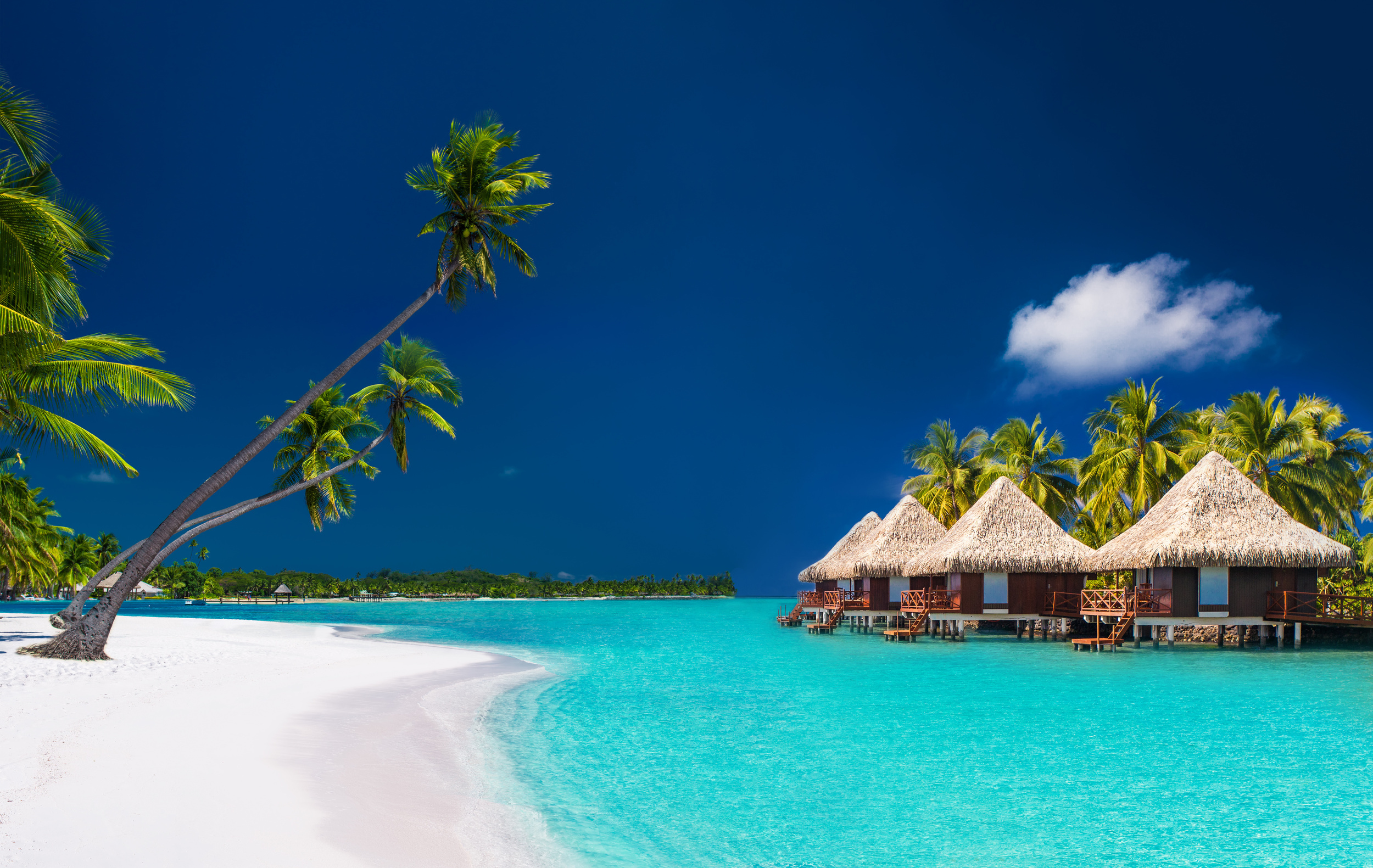Exotic places to vacation beckon travelers seeking unique experiences beyond the ordinary. This exploration delves into the subjective nature of “exotic,” examining diverse destinations across the globe, from the vibrant cultures of Southeast Asia to the untamed landscapes of South America. We’ll uncover what makes a vacation truly exotic, considering factors like accessibility, cost, cultural immersion, and adventure activities.
Prepare to be inspired to embark on your own extraordinary journey.
The article will highlight popular destinations, offering practical insights into planning your trip, including considerations for responsible and sustainable tourism. We’ll delve into the importance of respecting local customs and traditions, and explore how to engage authentically with local communities. Ultimately, this guide aims to equip you with the knowledge and inspiration to plan an unforgettable exotic vacation.
Defining “Exotic”
The term “exotic” in travel is inherently subjective, shifting based on individual experiences, cultural backgrounds, and personal preferences. What one traveler finds exotic, another might consider commonplace. This fluidity makes defining the term challenging but also contributes to the rich tapestry of travel experiences.
The concept of “exotic” often implies a departure from the familiar, a journey to places perceived as different and unusual. This difference can manifest in various ways, from unique landscapes and wildlife to distinct cultures and traditions. The perception of “exoticness” is therefore shaped by the traveler’s own cultural lens and prior travel experiences.
Geographic Examples of Exotic Destinations
Exotic destinations are scattered across the globe, each offering a unique appeal. Southeast Asia, for instance, frequently features on lists of exotic locales, with countries like Thailand, Vietnam, and Cambodia boasting vibrant cultures, ancient temples, and lush landscapes. Similarly, South America, particularly the Amazon rainforest and the Andes Mountains, offer breathtaking natural beauty and indigenous cultures that stand in stark contrast to many Western lifestyles.
Africa, with its diverse wildlife and ancient civilizations, also consistently ranks high on many exotic travel lists, showcasing countries like Tanzania, Morocco, and Ethiopia. Finally, parts of Oceania, including islands in the South Pacific, present unique ecosystems and traditional cultures that many find exceptionally exotic.
Diverse Perspectives on Exotic Vacation Experiences
The definition of an exotic vacation is multifaceted. For some, it might involve immersing themselves in a completely different culture, learning a new language, and engaging with local traditions. Others might prioritize exploring untouched natural wonders, embarking on adventurous treks through remote jungles or scaling challenging mountain peaks. Still others may focus on experiencing unique culinary traditions, sampling exotic fruits, and indulging in unfamiliar flavors.
The common thread, however, remains a desire to escape the ordinary and experience something truly unique and memorable.
Comparative Definitions of “Exotic”
| Definition | Geographic Location Examples | Traveler Type | Activities |
|---|---|---|---|
| Experiencing radically different cultures | Morocco, Nepal, Japan | Adventurous, culturally curious | Learning local customs, visiting historical sites, interacting with locals |
| Exploring unique natural landscapes | Galapagos Islands, Amazon Rainforest, Iceland | Nature enthusiast, adventure seeker | Hiking, wildlife viewing, photography |
| Seeking luxurious and secluded experiences | Maldives, Bora Bora, Seychelles | Luxury traveler, relaxation seeker | Spa treatments, private beach time, fine dining |
| Discovering off-the-beaten-path destinations | Bhutan, Papua New Guinea, Turkmenistan | Independent traveler, intrepid explorer | Backpacking, interacting with local communities, exploring remote areas |
Popular Exotic Destinations: Exotic Places To Vacation
Exotic travel offers a unique opportunity to immerse oneself in cultures vastly different from our own, experiencing breathtaking landscapes and unique traditions. This exploration delves into five popular exotic destinations, examining their cultural richness, accessibility, and overall appeal.
Bhutan: The Land of the Thunder Dragon
Bhutan, nestled in the Himalayas, captivates with its stunning mountain scenery, ancient dzongs (fortresses), and unique cultural heritage. The Bhutanese people are deeply rooted in their Buddhist traditions, with vibrant festivals and monastic life forming a significant part of daily life. The country’s Gross National Happiness index prioritizes environmental conservation and cultural preservation over purely economic growth.Accessibility to Bhutan is limited, with flights primarily operating through Paro International Airport, resulting in higher airfares.
Travel within the country often involves road travel, which can be challenging due to mountainous terrain. Accommodation ranges from luxurious resorts to simpler guesthouses, catering to various budgets.
- Pros: Stunning natural beauty, rich Buddhist culture, unique travel experience, emphasis on sustainability.
- Cons: Limited accessibility, relatively high cost, potential for altitude sickness.
Madagascar: Island of Biodiversity
Madagascar, an island nation off the coast of Africa, boasts unparalleled biodiversity, with unique flora and fauna found nowhere else on Earth. The Malagasy culture is a vibrant blend of African, Asian, and European influences, reflected in its music, art, and cuisine. Traditional practices, such as the Famadihana (turning of the bones) ceremony, showcase the island’s unique cultural heritage.Travel to Madagascar is relatively affordable, with a range of accommodation options available.
However, infrastructure can be limited in certain areas, and transportation may be challenging. Safety is a concern in some regions, requiring careful planning and consideration.
- Pros: Unique wildlife, diverse landscapes, relatively affordable travel, rich cultural heritage.
- Cons: Limited infrastructure, potential safety concerns in some areas, environmental challenges.
Tanzania: Safari Paradise, Exotic places to vacation
Tanzania, in East Africa, is renowned for its breathtaking national parks, offering unparalleled wildlife viewing opportunities. The Maasai people, with their distinctive culture and traditions, are an integral part of Tanzania’s heritage. Witnessing the Great Migration of wildebeest and zebras is a once-in-a-lifetime experience.Safari tours can be expensive, but a range of options cater to different budgets. Accessibility is generally good, with major airports and well-established tourist infrastructure.
However, safety precautions are advisable, particularly when venturing into remote areas.
- Pros: World-class wildlife viewing, diverse landscapes, established tourist infrastructure.
- Cons: Safari tours can be expensive, potential safety concerns in some areas, environmental impact of tourism.
Peru: Ancient Incan Legacy
Peru, located on the west coast of South America, is home to the magnificent ruins of Machu Picchu and other Incan sites. The country’s rich history and cultural heritage are reflected in its vibrant textiles, traditional music, and diverse cuisine. The Andes Mountains provide stunning scenery, while the Amazon rainforest offers a different kind of exotic adventure.Travel costs vary depending on the level of luxury desired.
Accessibility to major cities is good, but reaching more remote areas can be challenging. Altitude sickness can be a concern in the Andes.
- Pros: Rich history and culture, stunning landscapes, diverse activities.
- Cons: Altitude sickness can be a problem, some areas are difficult to access, potential for overcrowding at popular sites.
New Zealand: Land of the Long White Cloud
New Zealand, an island nation in the southwest Pacific Ocean, is known for its dramatic landscapes, from snow-capped mountains to geothermal wonders. The Maori culture, with its unique traditions and art forms, is an integral part of New Zealand’s identity. Adventure activities such as bungee jumping and hiking are popular attractions.New Zealand is generally accessible, with a well-developed tourist infrastructure.
The cost of travel can be relatively high, particularly for accommodation and activities. Environmental sustainability is a major focus, with efforts to minimize the impact of tourism.
- Pros: Stunning natural beauty, diverse activities, well-developed infrastructure, strong focus on sustainability.
- Cons: Relatively high cost of travel, potential for overcrowding in popular areas.
From the bustling markets of Marrakech to the serene beaches of the Maldives, the world offers a plethora of exotic destinations waiting to be explored. This journey into the realm of exotic vacations has highlighted the diverse experiences available, emphasizing the importance of responsible travel and cultural sensitivity. Whether you seek thrilling adventures or immersive cultural encounters, the key lies in embracing the uniqueness of each destination and leaving a positive impact.
So, pack your bags, embrace the unknown, and embark on an unforgettable adventure to a place truly exotic.
Discover the crucial elements that make best trips for senior citizens the top choice.

